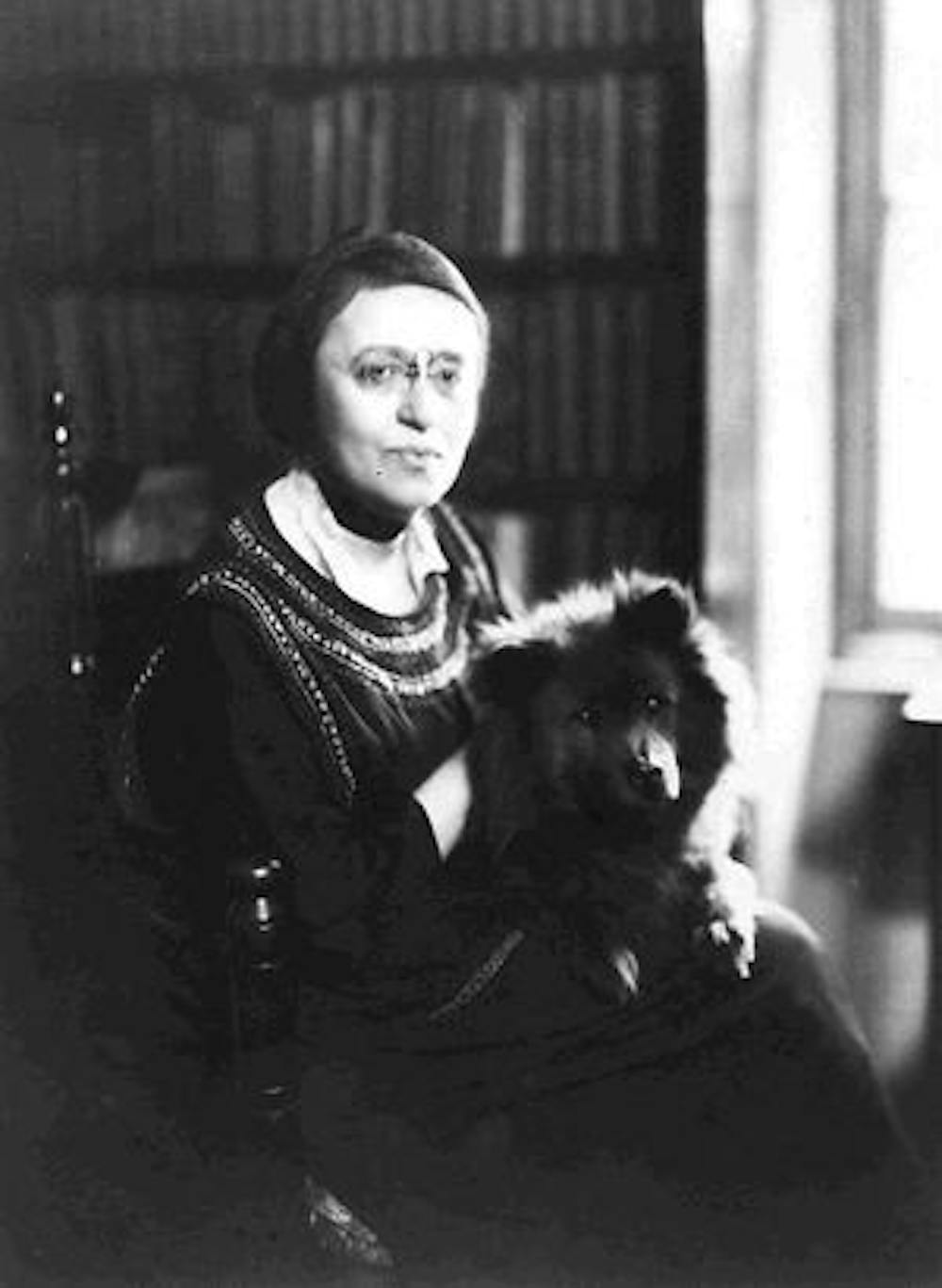Former Hopkins Vice President Ross Jones discussed his biography, Elisabeth Gilman: Crusader for Justice, on Thursday, Nov. 1 at the Evergreen Museum. Twelve years in the making, he explained, the biography reveals the forgotten life of a selfless woman.
Jones emphasized that Elisabeth Gilman was far more than just the daughter of the founding president of Hopkins, Daniel Coit Gilman.
“She was the centerpiece for social activism, reform and social justice in Baltimore for the first half of the 20th century,” Jones said.
He explained that Elisabeth Gilman’s concern for the welfare of others stemmed from her compassion and from her piety. In her late teens, he elaborated, Gilman participated in church programs that reached out to impoverished families.
She later joined her father’s Charity Organization Society as a social worker, where she assisted struggling members of Baltimore City in their own homes.
“Her goal in life was to advance what she called the kingdom of God on earth,” Jones said.
When World War I struck, she volunteered in Paris at a local hotel turned canteen. Jones proceeded to share a letter that Gilman wrote to her sister.
“My work grows daily in interest,” the letter read. “Our last tea on Sunday was a howling success, we fed about 150 boys tea and chocolate cake, having saved all of our sugar from the previous week.”
After the war ended, Gilman remained in Paris for nearly a year to assist struggling soldiers. When she returned to Baltimore, Jones said, she immediately started working with social and civic causes.
He reported that Gilman helped raise half a million dollars for a social service organization, the Baltimore Alliance. Throughout 1922, she served as secretary of the West Virginia Miners Relief Association, providing food to several thousand destitute families who were protesting unfair wages.
Jones described an instance when Gilman invited interracial guests to a dinner to honor The Nation’s editor, Oswald Villard who was a civil rights activist and a founding member of the National Association for the Advancement of Colored People (NAACP).
Jones explained that all the downtown hotels claimed that serving African Americans was against their policies.
“Angry but undaunted, she held the dinner for 100 guests at her home. It was front-page news in all of the city’s papers,” Jones said.
He added that Gilman also served as director of the Baltimore Open Forum, a weekly speaker series that ran for 25 years.
“Presenters included liberals, radicals, social reformers, politicians, clergy, socialists, feminists and so forth,” he said. “It was held in the largest halls of the city and regularly drew a crowd of 1,000 or more on Sunday afternoons.”
According to Jones, Gilman’s travels abroad, her commitment to social welfare and her possible love affair with Episcopal clergyman Mercer Green Johnston influenced her identity as a socialist.
Jones added that Gilman befriended Johnston at a socialist conference in 1916, during which Johnston preached his progressive views on church reform. Jones explained that Gilman even funded Johnston’s living expenses.
“She was more than willing to provide [Mercer and his wife] with whatever they needed so Mercer could continue to speak out on the necessity for social reform,” Jones said.
When Mercer and his wife moved away for other employment, Jones said that Gilman was devastated. During May 1930, however, the Maryland Socialist Party nominated her for governor.
“She said that she wanted to give Marylanders a better understanding of socialism,” Jones said. “Her message was a simple one, ‘The socialist party wishes to make the world a better place for everyone to live, and, as a means to this end, it advocates public ownership and administration of basic industries, especially that of electric power.’”
Though Gilman lost the election, she would go on to campaign for governor once more, senator twice, mayor of Baltimore once and even Sheriff of the city. None were successful, but Jones added that Gilman was optimistic, quoting from her stump speech.
“Voters need not feel they’re losing their votes if they should not elect socialist candidates this year, because this is an educational campaign, and the foundation is being laid for the future, when the farmer and the laborer will come into their own,” the speech read.
When she was not occupied with campaigning, Jones reported that Gilman continued to pursue various social causes that she was passionate about.
“She was badgering Congress for relief funds for 17 million men and women who were out of work. She was raising money for 4,000 cotton mill workers on strike for better conditions in Danville, Va. She was speaking out against racial discrimination and fascism,” he said.
Jones’ talk concluded with an open discussion, book signing and reception. Some audience members questioned how such a woman could be lost to history.
James Garrett, president of the Evergreen House Foundation, offered some answers as to why Gilman’s legacy was forgotten.
“Ross suggested it was because she did more than she wrote. Had she been elected, she would have been better known. Had she been married and had a husband who was known, probably her profile would have been longer lasting, which is a horrible thing to have to say but probably true,” Garrett said.
Audience member Chris White, who had worked with Jones in the past, attended his talk for a second time.
“[Gilman was] a wonderful, gentle person as well as someone who believed in what she was doing and went forward with it. It was a story that was important to tell,” White said.
Sheridan Dean of University Libraries and Museums Winston Tabb agreed, adding that Jones seemed like the perfect candidate to tell Gilman’s story.
“While Elisabeth Gilman’s story is informed by her association with Hopkins through her father, it also spans continents, world wars, political movements and many triumphs and setbacks beyond Baltimore,” he said. “We are delighted that Ross is bringing Gilman’s compelling and too little known story to life for us.”





